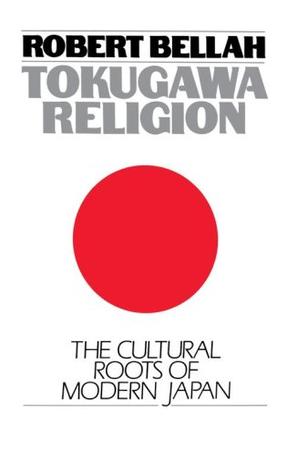Robert N. Bellah's classic study, Tokugawa Religion does for Japan what Max Weber's The Protestant Ethic and the Spirit of Capitalism did for the West. One of the foremost authorities on Japanese history and culture, Bellah explains how religion in the Tokugawa period (160-1868) established the foundation for Japan's modern industrial economy and dispels two misconceptions about Japanese modernization: that it began with Admiral Perry's arrival in 1868, and that it rapidly developed because of the superb Japanese ability for imitation. In this revealing work, Bellah shows how the native doctrines of Buddhism, Confucianism and Shinto encouraged forms of logic and understanding necessary for economic development. Japan's current status as an economic superpower and industrial model for many in the West makes this groundbreaking volume even more important today than when it was first published in 1957. With a new introduction by the author.
Robert N. Bellah is Elliott Professor of Sociology Emeritus at the University of California at Berkeley.
Bellah graduated summa cum laude from Harvard College with a B.A. in social anthropology in 1950. His undergraduate honors thesis on “Apache Kinship Systems” won the Phi Beta Kappa Prize and was published by the Harvard University Press. In 1955, he received a Ph.D. from Harvard University in Sociology and Far Eastern Languages and published his doctoral dissertation, Tokugawa Religion, in 1957. After two years of postdoctoral work in Islamic Studies at McGill University in Montreal, he began teaching at Harvard in 1957 and left 10 years later as Professor of Sociology to move to the University of California, Berkeley. From 1967 to 1997, he served as Ford Professor of Sociology.
Other works include Beyond Belief, Emile Durkheim on Morality and Society, The Broken Covenant, The New Religious Consciousness, Varieties of Civil Religion, Uncivil Religion, Imagining Japan and, most recently, The Robert Bellah Reader. The latter reflects his work as a whole and the overall direction of his life in scholarship “to understand the meaning of modernity.”
Continuing concerns already developed in part in “Civil Religion in America” and The Broken Covenant, led to a book Bellah co-authored with Richard Madsen, William Sullivan, Ann Swidler and Steven Tipton. Habits of the Heart: Individualism and Commitment in American Life published by the University of California Press in 1985. The same group wrote The Good Society, an institutional analysis of American society, published by Alfred A. Knopf in 1991.
 Tokugawa Religiontxt,chm,pdf,epub,mobi下载
Tokugawa Religiontxt,chm,pdf,epub,mobi下载 首页
首页



好书.值得观看.更是值得收藏.
有深度
观点比较新颖,文笔流畅,通俗易懂。
思想很新颖